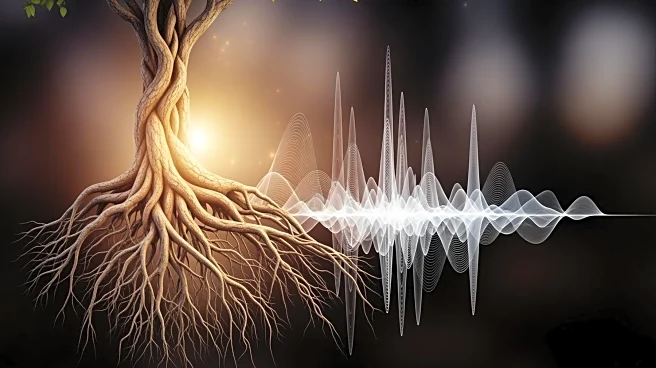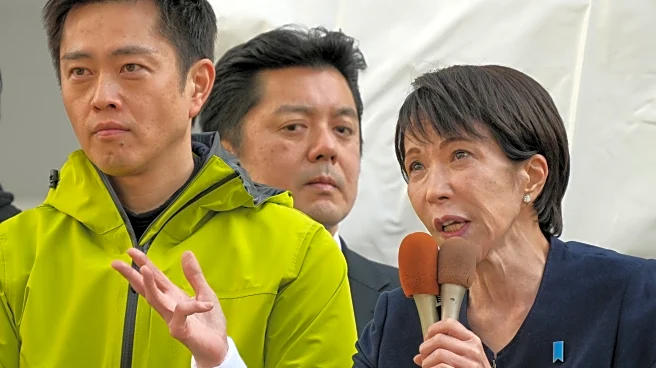What's Happening?
A new framework proposed by researchers from the Max Planck Institute argues that human language evolved from the convergence of various biological abilities and cultural processes, rather than a single evolutionary leap. The study integrates insights
from linguistics, neuroscience, genetics, psychology, and animal behavior, challenging traditional single-origin models. It suggests that vocal learning, grammar formation, and social cooperation evolved along different paths before merging into the complex communication used today. The framework emphasizes the importance of multidisciplinary approaches to understanding language evolution, highlighting shared mechanisms across species that contribute to complex communication.
Why It's Important?
This framework offers a comprehensive view of language evolution, emphasizing the interaction of biological and cultural factors. It opens new directions for research in communication, artificial intelligence, and language disorders by providing a broader understanding of the evolutionary processes involved. By studying language through a biocultural lens, researchers can gain insights into the unique and shared features of human communication, potentially leading to advancements in technology and healthcare. The approach also encourages collaboration across scientific disciplines, fostering innovation and deeper understanding of human evolution.
















